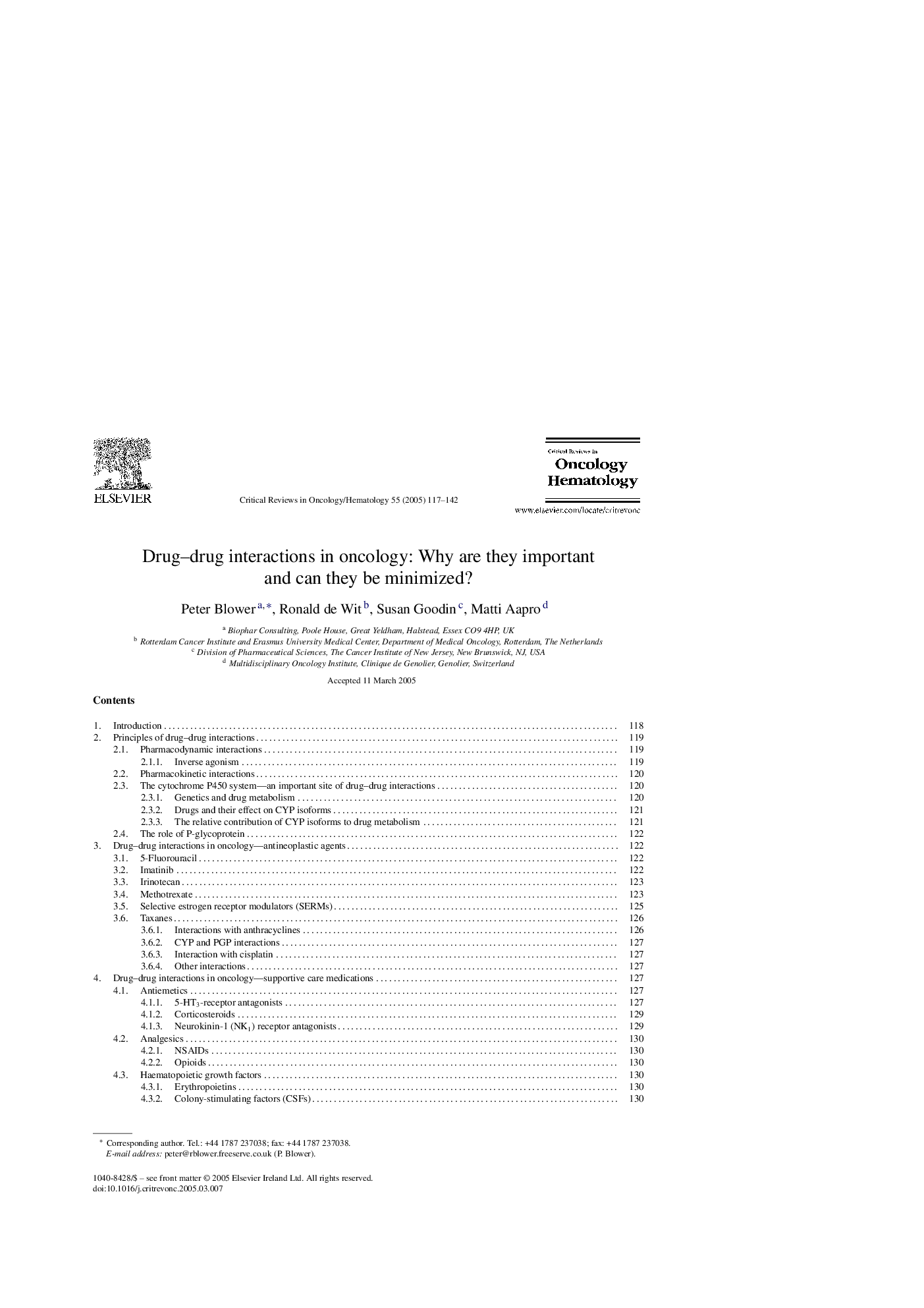| Article ID | Journal | Published Year | Pages | File Type |
|---|---|---|---|---|
| 9257595 | Critical Reviews in Oncology/Hematology | 2005 | 26 Pages |
Abstract
Adverse drug-drug interactions are a major cause of morbidity and mortality. Cancer patients are at particularly high risk of such interactions because they commonly receive multiple medications, including cytotoxic chemotherapy, hormonal agents and supportive care drugs. In addition, the majority of cancer patients are elderly, and so require medications for co-morbid conditions such as cardiovascular, gastrointestinal, and rheumatological diseases. Furthermore, the age-related decline in hepatic and renal function reduces their ability to metabolize and clear drugs and so increases the potential for toxicity. Not all drug-drug interactions can be predicted, and those that are predictable are not always avoidable. However, increased awareness of the potential for these interactions will allow healthcare providers to minimize the risk by choosing appropriate drugs and also by monitoring for signs of interaction. This review considers the basic principles of drug-drug interactions, and presents specific examples that are relevant to oncology.
Keywords
Related Topics
Health Sciences
Medicine and Dentistry
Hematology
Authors
Peter Blower, Ronald de Wit, Susan Goodin, Matti Aapro,
